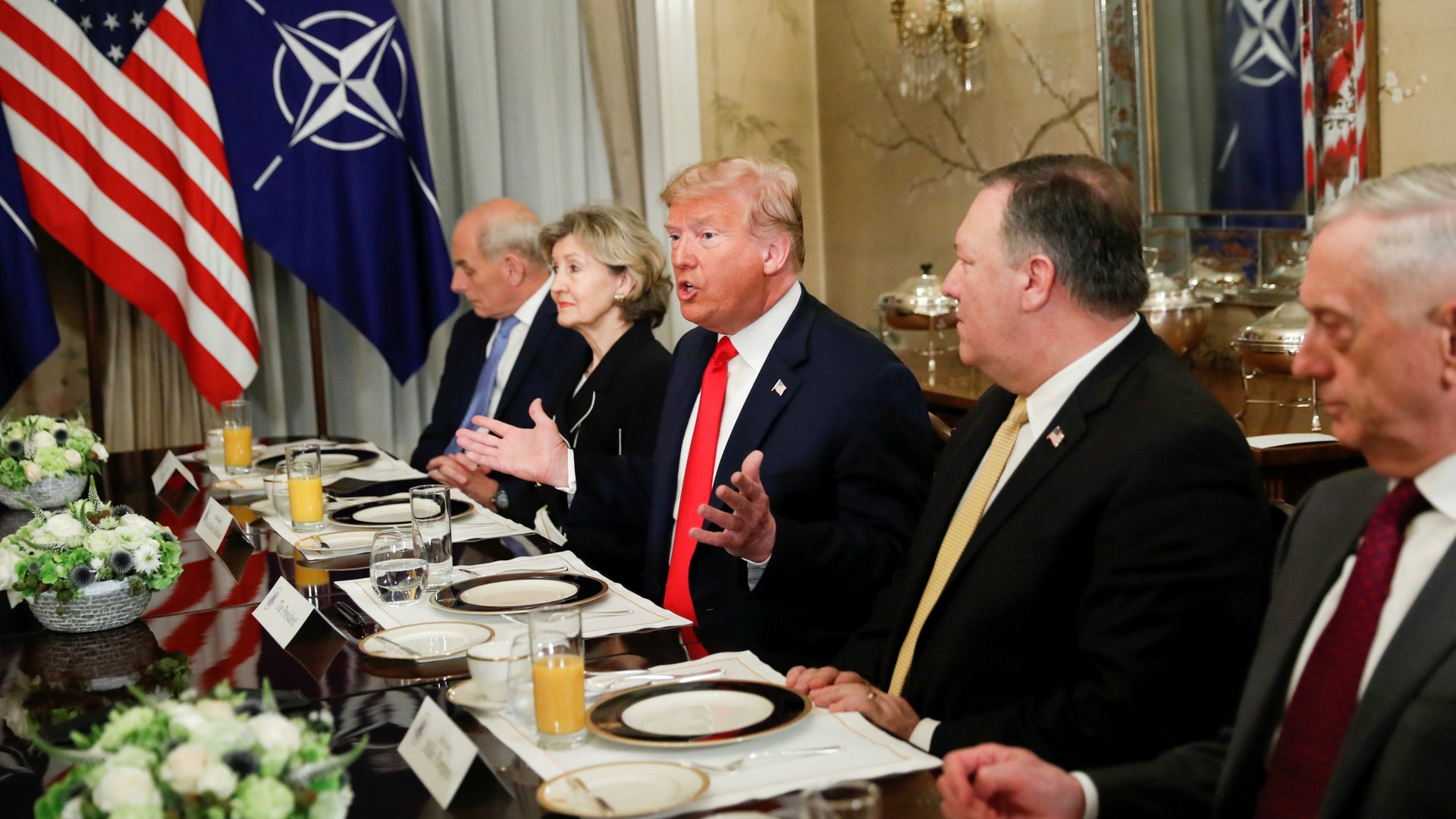Trump wants to bail out US farmers to save them from his own trade war
Donald Trump is preparing a $12-billion financial aid package geared at reducing the damage his own trade policies are inflicting on American farmers. Details of the plan are scant, but the package is expected to be rolled out in September.


Donald Trump is preparing a $12-billion financial aid package geared at reducing the damage his own trade policies are inflicting on American farmers. Details of the plan are scant, but the package is expected to be rolled out in September.
In a call with reporters, the US Department of Agriculture said the money will be distributed to farmers based on calculations of how much damage they endured from retaliatory tariffs imposed on the US. The money is expected to be allocated to three different areas: directly to hog producers and to farmers who grow soy, sorghum, wheat, and cotton; to purchasers and distributors of fruits, nuts, rices, and legumes that supply American food banks and other nutrition programs; and for a trade promotion package in which commodity producers can apply for money for new advertising and marketing.
As word of the plan rippled into the media, farm groups and journalists characterized it as a “bailout” and an attempt to assuage a rural base of supporters that has grown uneasy as Trump has steered the US into a series of trade wars with important agricultural export markets such as China and Canada. Early reactions from farm groups show the White House plan is drawing more skepticism than relief. In general, they say their members aren’t interested in getting handouts from the government at the expense of American taxpayers.
“We don’t want payments,” says Dave Warner, spokesman for the National Pork Producers Council (NPPC). “What we really want is the trade disputes to end, and then the tariffs will go away.”
Another group, Farmers for Free Trade, issued a similar statement: “The best relief for the president’s trade war would be ending the trade war. Farmers need contracts, not compensation, so they can create stability and plan for the future.”
The groups are waiting to learn more specific details about the White House’s proposal. Every year, the government allocates contracts with farm groups to supply food for anti-hunger programs, as well as for meals in public schools and on military bases. If the aid came in the form of increased government spending on those contracts, the plan would be better received, Warner says. In fiscal 2018, the US government spent hundreds of millions of on food, much of which supply federal programs.
Already some Republicans in Congress have criticized the White House plan as giving farmers “gold crutches” as they try to weather a storm started by the president. Nebraska senator Ben Sasse in a statement said, “America’s farmers don’t want to be paid to lose—they want to win by feeding the world. This administration’s tariffs and bailouts aren’t going to make America great again—they’re just going to make it 1929 again.”
Even some major Republican supporters are criticizing the proposal. Freedom Partners, a nonprofit business group connected to Charles Koch, issued a statement blasting Trump’s idea. “Farmers are rightly concerned about the fallout from an escalating trade war,” the statement reads. “But soaking taxpayers to fund more federal aid is the wrong approach.”